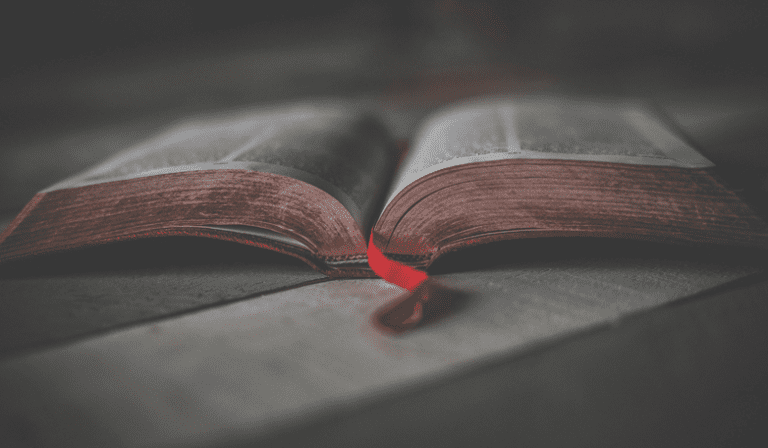
Since September 11, 2001 Americans have lived with the realization that people in this world want to kill us. They detest our government and its policies, so instead of exercising futility by attacking our military forces they target civilians. Attackers in Paris reawakened this reality when they murdered 167 people in a coordinated attack. Many also suspect terrorist activity might be behind the San Bernadino shootings which took place yesterday, triggering a new wave of fears.
As Christians think about how we respond to these attacks we must remember that we possess two distinct but complementary citizenships. Christians in the United States live as citizens of this nation. We live subject to both the laws of this land, which we have the blessing of being able change through influence, and the leaders of this land, whom we elect. Our elected leaders have a responsibility to bear the sword and protect those under their care. (Romans 13) They stand responsible before God to carry out temporal judgement on those who do violence to others. At the same time, Christians live as citizens of the kingdom of heaven. We are the ambassadors of Christ in the kingdom of this world and represent his interests in our culture.
One of the areas where Christians struggle in their response to senseless violence is that they fail to differentiate between the government’s response and our individual response as Christians. Many believe our current administration lacks adequate forcefulness in dealing with these tragedies and so we turn up the rhetoric on our pronunciations. In light of this, Christians need to think more seriously about how we respond to terrorism and violent national tragedies.
We Do not Respond with Fear
When we see violence taking place in the streets of an American town we picture it taking place on our own streets. This causes us to panic, worry, and fear. To speak frankly, many conservative Christians have sounded paranoid about the possibility of violence in our own backyard from Muslim extremists in the last few months, especially as it regards the Syrian refugees. My Facebook timeline has been filled with reports of violence that has supposedly taken place at the hand of refugees in Europe and usually contains captions cautioning about the violence they would bring here as well.
Conservative commentators and news outlets know our tendency towards fear and feed it as often as possible. Many commentators increase their retweets, likes, shares, page views, audience, and bank accounts by appealing to our fears. We think they are informing us, when in reality they are giving us more to be afraid of. This doesn’t mean we don’t need to know what is going on in the world, but we should ask ourselves what our news sources stand to gain by that on which they tend to focus.
Scripture commands Christians not to fear and tells us why fear is incompatible with our faith. Christians do not have to worry because perfect love casts out fear (1 John 4:18). Christians should not worry because worrying cannot change anything and does not add one day to our lives (Matthew 6). Christians must not worry because God is in heaven and he does what he pleases (Psalm 115:3). Instead of worrying we turn to God in prayer casting our anxieties on him because he cares for us and will give us his peace (1 Peter 5:7, Phil. 4:6-7). Let us refuse to be terrorized, knowing that the ultimate power in the world is not a madman with a gun, but our God who is a consuming fire. We shouldn’t fear them, but we should fear him.
We Do not Respond with Vengeance
What you fear you begin to loathe and despise. As Christians in our culture increasingly fear attacks from Muslim extremists, we turn up our rhetoric against all Muslims and people of Arabic decent. Republican Presidential candidates would not recommend keeping a list of all Muslims in American if they did not think it would ignite a large portion of their base. Could you imagine if President Obama recommended putting together such a list of Christians in America? We would lose our collective minds, and rightfully so, but when Republican candidates suggest this about the people we fear and loathe they hear applause instead of scorn.
Jesus did not leave us in the dark as to how Christians treat those who make themselves our enemies. He said we are blessed when we love those who revile and persecute us, he commanded us to love our enemies and pray for those who persecute us and the night before he died he reminded his disciples that they should expect the world to hate us. The world hated him first and put him to death, so Christians in the 21st century should not be shocked when our faithfulness to Christ incites mockery, scorn, and violence. How did Jesus respond to those who hated him and put him to death? He entrusted himself to God and prayed for God to forgive them.
We recognize that the only thing that will change the hearts of hateful men and women is the Gospel of Jesus Christ. We do not commend or communicate this Gospel when we hate our neighbors in our hearts; but when we respond by showing the love we have been shown, we powerfully demonstrate the reality of the Gospel which has saved us. What if we disarmed everything our enemies are saying about us by demonstrating the love of Christ to our Arabic neighbors who live among us? What if instead of avoiding their stores like one elected official recommended ,we faithfully patronized them and showed overwhelming kindness every time we stepped in the door? Would not our good conduct show the lie in everything the enemy had to say about us?
It you are a Christian this great reality informs everything about your life. The government must do what the government must do and you should voice your opinion to your elected officials; but your personal response must be in line with the word of God and the reality of the Gospel you have believed. In Christ you experienced the unending and amazing love of God. You are a child of the King of the universe by his grace alone. What response is more in keeping with this Gospel- fear and loathing or peace and love?
Related Posts:
“When Fear Overwhelms”
For Further Reading:
The Freedom and Power of Forgiveness by John MacArthur
Love Your Enemies by John Piper












